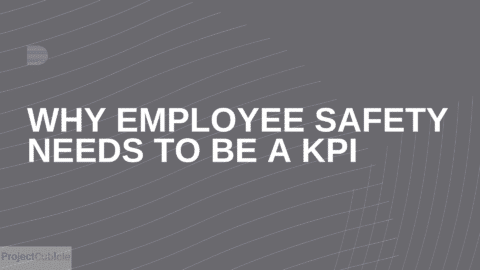10 Reasons to Advocate Safety and Sound Labor Practices in Industrial Zones
Advocating safety and sound labor practices remains an uphill battle in many places and in many industries. In part, this is because introducing enhanced safety regulations goes against long-standing corporate traditions and practices. Improving safety standards also typically requires additional investments in infrastructure, equipment, and training. Simply put, achieving a safety-conscious culture within an organization requires stakeholders to adopt a mindset of prioritizing safety above all else.
Table of Contents
Despite these difficulties, it’s still a must to implement sound labor practices. Especially in established industrial zones. More than just a legal requirement, embracing safety is a moral imperative and strategic business move that benefits workers, enterprises, and society as a whole. Here are compelling reasons why advocating safety and fair labor practices should be at the forefront of industrial operations.
What are examples of labor practices?
Examples of labor practices include fair wages, safe working conditions, reasonable working hours, non-discrimination in hiring and employment, employee benefits (such as healthcare and retirement plans), paid leave (such as vacation and sick leave), training and development opportunities, and adherence to labor laws and regulations.
What is sound Labour relations?
Sound labor relations refer to the establishment of positive and constructive relationships between employers and employees. It involves effective communication, mutual respect, fair treatment, and cooperation between management and labor unions or employee representatives to promote harmonious working environments, resolve conflicts, and negotiate collective agreements.

Worker Well-Being
The saying “regulations are written in blood” underscores a sobering reality in many industries. Safety regulations and labor practices often evolve in response to tragic incidents or accidents that result in injuries or loss of life. Preventing such incidents is the primary driver of advocating safety and sound practices in the workplace and in industrial zones at large. After all, being able to work in an environment that is free from unnecessary risks, hazards, and unsafe conditions that can lead to accidents, injuries, and health issues is a human right.
Productivity and Efficiency
Safe and healthy workers are more likely to be productive and efficient in their roles. When employees feel secure in their workplaces, they can focus on their tasks without constantly worrying about their safety. The same can be said if they feel safe and comfortable in their homes and on their way to work. To boost overall productivity, some industrial zones feature master-planned townships and residential facilities. These specifically cater to local workers. In the Philippines, for example, Aboitiz InfraCapital—one of the country’s leading providers of infrastructure development services—presents this option to workers and businesses based in the Province of Batangas.
The developer’s economic estate in the province has a 600-bed co-living space with its own transportation hub and facilities that make use of renewable energy sources. The improved focus and sense of well-being enjoyed by the workers and residents of the industrial zone. And it contributes to increased productivity, benefiting the organization’s overall performance and competitiveness.
Legal Compliance and Sound Labor Practices
Adhering to labor laws and regulations concerning safety and labor practices is not just an option. It’s a legal requirement. Non-compliance to existing laws can result in legal consequences, fines, and damage to a company’s reputation. And it can also tarnish the image of an industrial zone. By advocating safety and good labor practices, businesses and the economic estates where they operate can avoid legal troubles. And maintain a positive standing within the legal framework.
Ethical Responsibility
Beyond legal obligations, there exists an ethical responsibility to treat workers with respect and dignity. Denying workers their rights and compromising their safety is a violation of basic human rights and goes against the principles of fairness and justice. Failing to treat workers fairly also prevents industrial estates from tapping networks such as World Fair Trade Organisation and partnering with brands that have made a commitment to ethical sourcing and manufacturing. Upholding ethical labor practices in industrial zones is clearly essential for maintaining the moral integrity of businesses and society at large.

Attracting Talent
Companies that are known for their commitment to safety and ethical labor practices have a competitive edge in attracting top talent. This is because employers who prioritize safety and well-being. Along with fair compensation and working conditions, are highly sought after by high-value workers. Businesses that advocate safety practices and compliance to labor laws can build a reputation as desirable employers. Then it helps them secure the best talent in their respective industries.
Reduced Turnover
Workers are more inclined to stay with employers who value their well-being, provide fair compensation, and maintain safe working conditions. As such, businesses that prioritize safety and fair labor practices tend to experience lower turnover rates. Reducing turnover rates not only reduces the cost and effort of recruiting and training new employees. But it also enables an organization to benefit from having a more experienced and stable workforce.
Improved Reputation via Sound Labor Practices
A company’s reputation is intricately tied to its labor practices. Businesses that prioritize safety and fair treatment of workers earn the trust and loyalty of customers, investors, and the community at large. A strong reputation for ethical practices, in turn, can lead to increased customer loyalty, positive word-of-mouth marketing, and stronger relationships with investors and stakeholders. Ultimately, an organization’s investment in the safety of its workers contributes to the long-term success of the business.
Reduced Costs
While initial investments may be required to improve safety and labor practices, in the long run, they often lead to significant cost savings. In fact, according to a 2021 document released by the European Union, employers are able to double every euro they invest in occupational safety and health. Fewer accidents and injuries also translate to lower medical and insurance costs as well as reduced losses in terms of working hours and productivity. The same EU paper. For instance, revealed that illnesses and accidents in the workplace typically cost 3.3% of the union’s annual GDP. Moreover, a stable, motivated workforce results in reduced turnover and the associated recruitment and training expenses. Investing in safety and fair labor practices is, in essence, an investment in long-term cost efficiency.
Sustainable Business Practices
Ethical labor practices and safety initiatives are integral components of sustainable business practices. Companies that demonstrate social responsibility, including prioritizing the welfare of their employees, are better positioned to thrive in a global marketplace that increasingly values sustainability. It’s worth noting that sustainability isn’t limited to environmental concerns. This concept has far-reaching social and ethical dimensions, making sound labor practices a core aspect of a sustainable business model.
Social Stability with Sound Labor Practices
Advocating for safety and fair labor practices in industrial zones contributes to social stability by mitigating the likelihood of labor disputes, strikes, and other events that disrupt business operations and lead to economic instability. By fostering harmonious relations between employers and workers, a more stable environment is created, benefiting both businesses and the broader society.
Beyond the moral and ethical obligations, advocating safety and sound labor practices in industrial zones offer tangible benefits to workers, businesses, and society as a whole. By prioritizing the safety and well-being of employees, businesses and infrastructure developers not only secure their own success. But also contribute positively to the betterment of communities and the global workforce.

Business Developmeny Manager at PAS InfoCom Technologies Ltd. Experienced in project management with a demonstrated history of working in the information technology and services industry.










